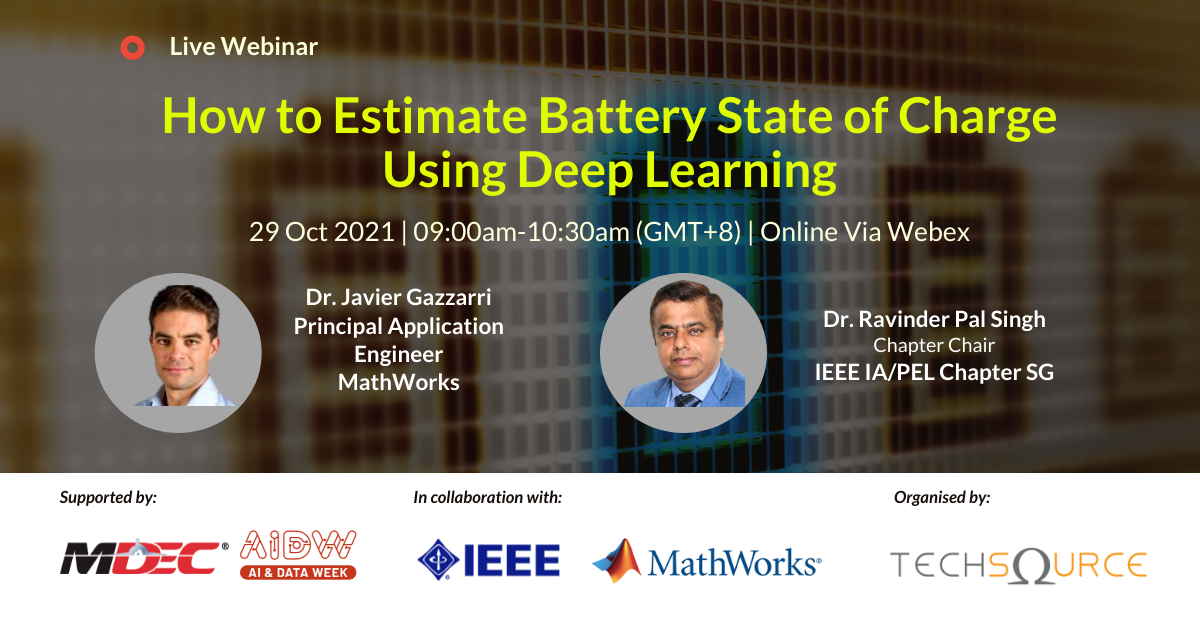
To say that lithium-ion batteries are important in our lives would be an understatement. They are everywhere—from our mobile phones, laptops, and wearable electronics to electric vehicles and smart grids—so knowing how long their charge will last is important, too!
The focus of this webinar is the application of neural networks to battery state of charge estimation. State of charge estimation is the task of the battery management system, or BMS. An accurate determination of the State of Charge (SOC) in a battery indicates to the user how long they can continue to use the battery-powered device before a recharge is needed. In a car, for example, an accurate knowledge of the time to recharge reduces anxiety and allows for appropriate trip planning.
Dr. Javier Gazzarri
Dr. Javier Gazzarri is a Principal Application Engineer at MathWorks in Novi, Michigan, specializing in modeling and simulation of battery systems as part of Model-Based Design. His work focuses on physical modeling, from cell-level to system-level, parameter estimation for model correlation, battery management system design, thermal management, aging diagnosis, and state-of-charge estimation algorithm development. Before joining MathWorks, Dr. Javier worked on fuel cell modeling at the National Research Council of Canada in Vancouver, British Columbia. He received a Mechanical Engineering Bachelor’s degree from the University of Buenos Aires (Argentina), a MASc degree (Inverse Problems for sensor design), and a PhD degree (Solid Oxide Fuel Cell degradation diagnosis) from the University of British Columbia (Canada).
Dr. Ravinder Pal Singh
Dr. Ravinder Pal Singh (S’04, M’10, SM'16) received a PhD degree in 2010 from the National University of Singapore. He is currently working at the Institute of Microelectronics (IME), A*STAR, where he has been focusing on Power Management ICs. His current areas of research are Integrated Voltage Regulators using Thin-Film Magnetics and next Generation SiC devices.
He is actively involved in various IEEE organizational units both at the Section and Chapter level, charting the direction to expand members’ benefits and catering to their needs. He is currently Chapter chair of IEEE Industrial Applications/ Power Electronics (IA/PEL) joint chapter and the Membership Development chair for Singapore Section. He is also organizing chair for 14th IEEE International Conference on Power Electronics and Drive Systems (PEDS 2023).
The headline and subheader tells us what you're offering, and the form header closes the deal. Over here you can explain why your offer is so great it's worth filling out a form for.
Remember:
All rights reserved. Copyright © 2025 TechSource Systems and Ascendas Systems Group